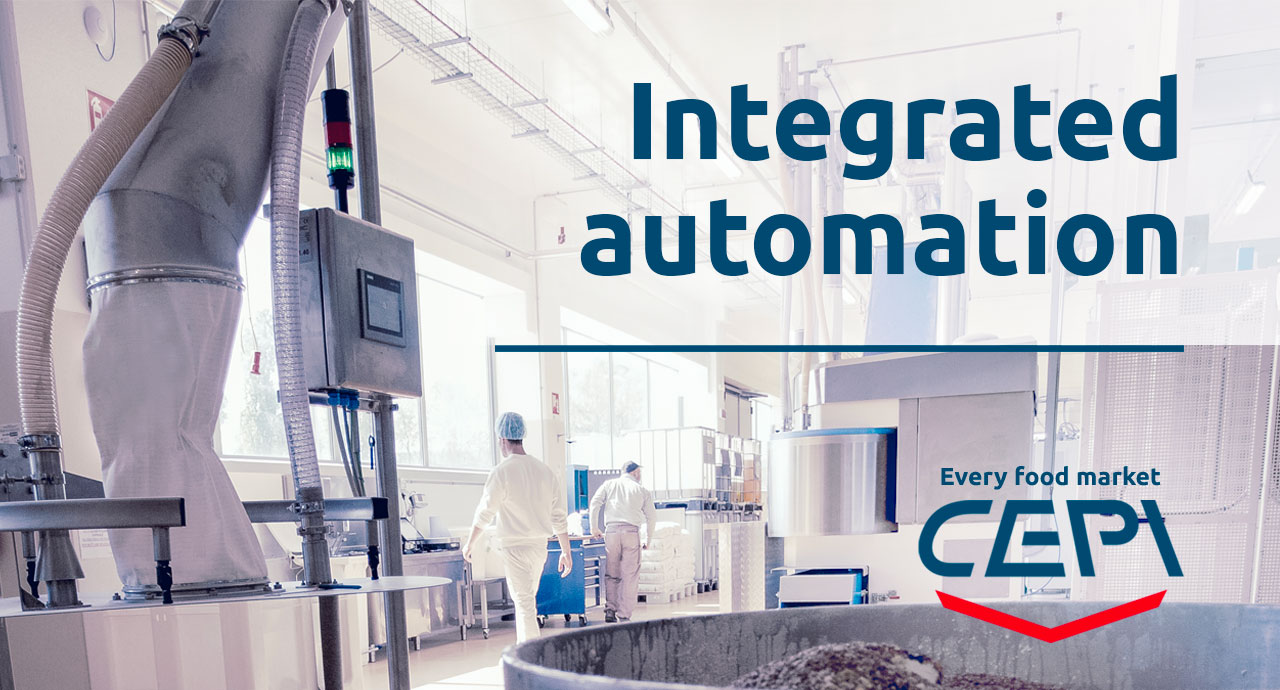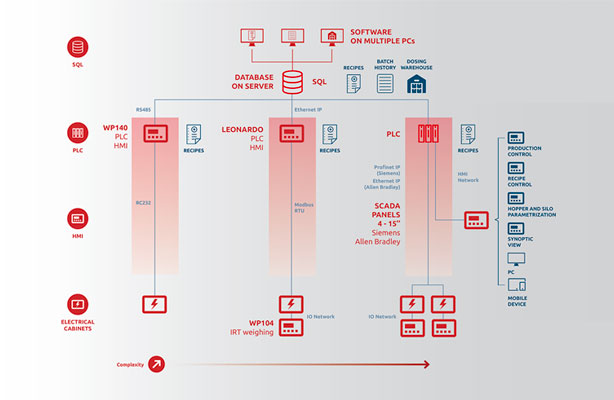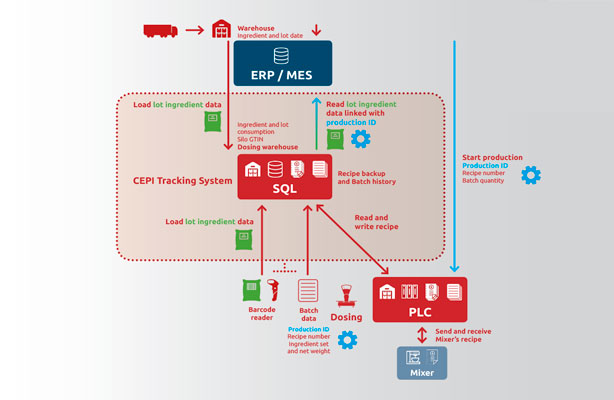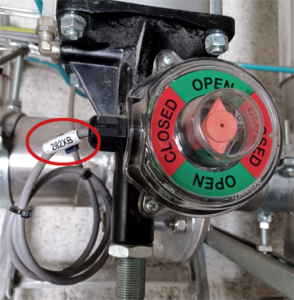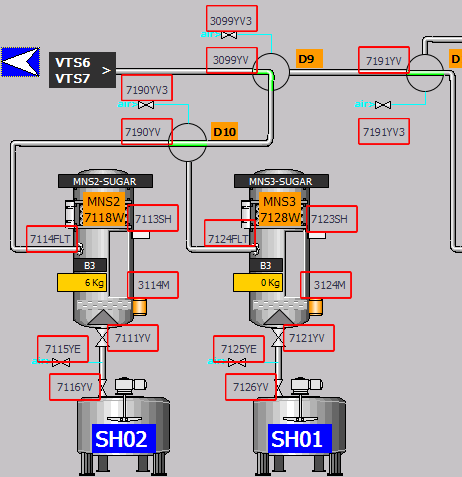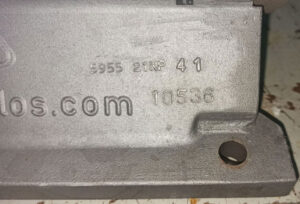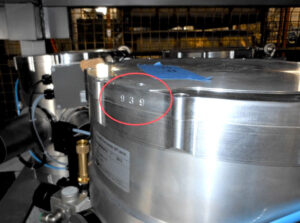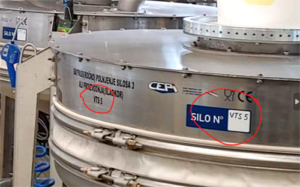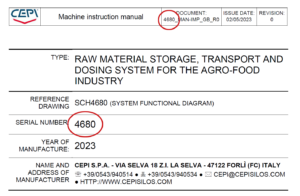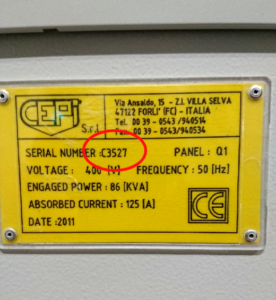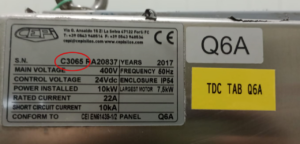Food productions require technologies that provide high levels of accuracy in weighing, dosing and tracking processes, to ensure quality and safety in high volume productions. Operations must be efficient and reliable, with dosing equipment that can deliver homogeneity and a process that protects the unique flavor of each product, minimizes consumptions and waste, and ensures compliance with hygiene and food safety regulations.
CEPI provides a turn-key system that includes the automation. Hardware and software design is done completely in-house, with production management through touch panels and software for full traceability and warehouse management. Each automation system is the result of a decades-long history of parallel development alongside the mechanical side. With a team of 24 programmers working on automation and software design, CEPI provides technical and human continuity through the development of a project that can become very specific and complex.
We provide multiple operator panel solutions. Our customized 4-15’’ operator panels can be developed on Siemers or Allen Bradley platforms, and handle recipe creation and management, ingredient and hopper parametrization, synoptic overview with real time status and maintenance of utilities with manual command, loading of silos and other stations, as well as any other functions like washing and climatization. Other options include CEPI’s native PLC and weighing processor with LCD display, for standard operations and one-line production processes. Weighing control in real time is provided for all our storing and dosing stations, along with the management of all other variables involved such as temperature and pH.
CEPI’s native software Tracking System provides process control, warehouse management and full traceability with production statistics and data management, as well as total information exchange through SQL database and communication with ERP or MES. Receiving and visualizing data from the touch panels managing the production, Tracking System creates a history of storing and recipe production operations, providing production analysis with statistics of ingredient consumption, batch report with deviation analysis, stock visualization and dynamic graphics illustrating product, recipe or lot trends.
Our system is interconnected and can exchange information with any third party in the line. Our solutions provide full horizontal and vertical integration, managing dialogue and data among our devices and those of other partners, after the dosing and before the raw ingredients management. All our data can be easily integrated with global ERP or MES to achieve organization-wide traceability. It can generate important information for not only for the production departments and management, but for departments such as Quality Control (lot usage information for each raw material) and Purchases (schedule of raw material purchase, spare part purchase).
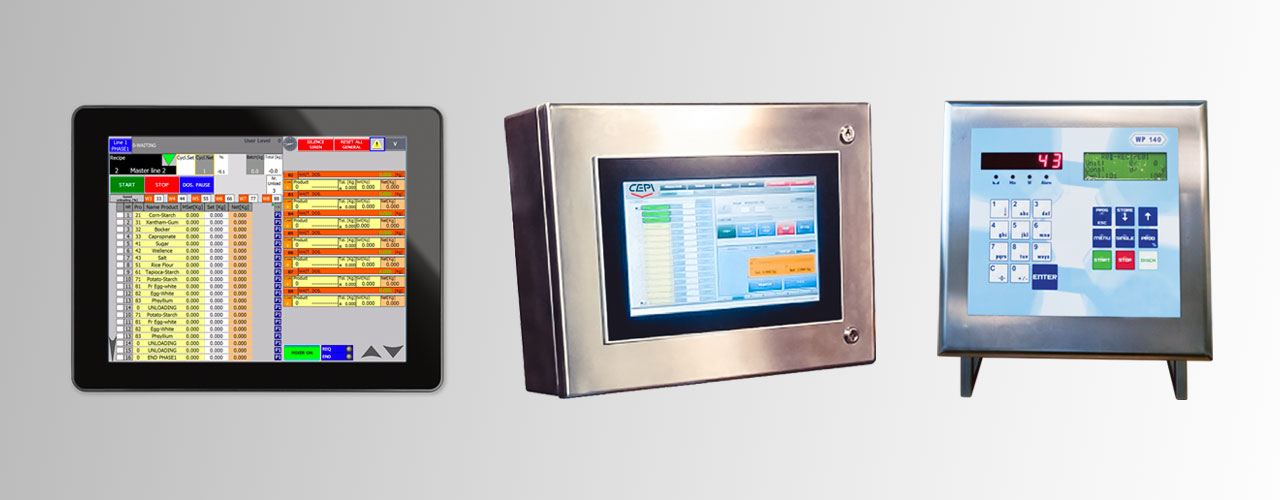
Customized 4-15’’ touch panel on Siemers or Allen Bradley platform, CEPI’s native PLC and weighing processor with LCD display
The design of the dosing system
Fragrance, taste and integrity: an automatized management of dosing processes and raw ingredients not only ensures efficiency but is the best choice for producers who wish to achieve a final product of high quality and unique flavor. Controlling parameters such as temperature, pH, atmosphere is necessary to preserve the properties of the ingredients, and an automatized recipe is accurate and constant, leading to repeatability and high volumes of uniquely tasting food.
Case in point: a key factor in the production of baked products is the temperature of the dough. This requires an automatic dosing system and technologies that reliably manage it. Pairing up with a partner that can provide flexibility and all-around expertise, production lines will become more linear and rational while achieving the natural, healthy and aromatic products that are pursued by modern markets.
With vast food technology expertise, all our technologies are developed factoring the preservation of flavor and ingredient properties. Each of CEPI’s automation systems is fully customized to match analysis of raw materials, site evaluation, environment and consumptions, and designed through a comprehensive study of the manufacturer’s processes. Designing a dosing system is a complex process that requires a close analysis of the manufacturer’s processes and detailed information that goes beyond the purely technical, involving all departments from warehouse to marketing. CEPI has refined this process to perfection, building systems that fit the diverse needs of each process and will easily accommodate future expansions. We ensure:
- Repeatability and accuracy of recipe
- High quality product and unique flavor
- Traceability of materials and processes
- Higher production volumes
- Improved working conditions
- Less human error
- Enhanced communication with other software and ERP
- Higher hygiene with total separation between production and warehouse
- Reduced consumptions, powders and pollutions
- Space optimization in the production area and the warehouse
- Easy to adapt or expand including the addition of new ingredients due to the flexibility of the process
Our systems provide flexible management that allows a manual option for all operations, while still supplying all necessary weighing and dosing information such as weights, times and temperatures. However the general preference is for automated operations.
Even during automatic productions, operators in possess of the required authorization level can always intervene to stop or adjust the process, for example by changing a recipe on the fly. All utilities can be commanded manually during maintenance.
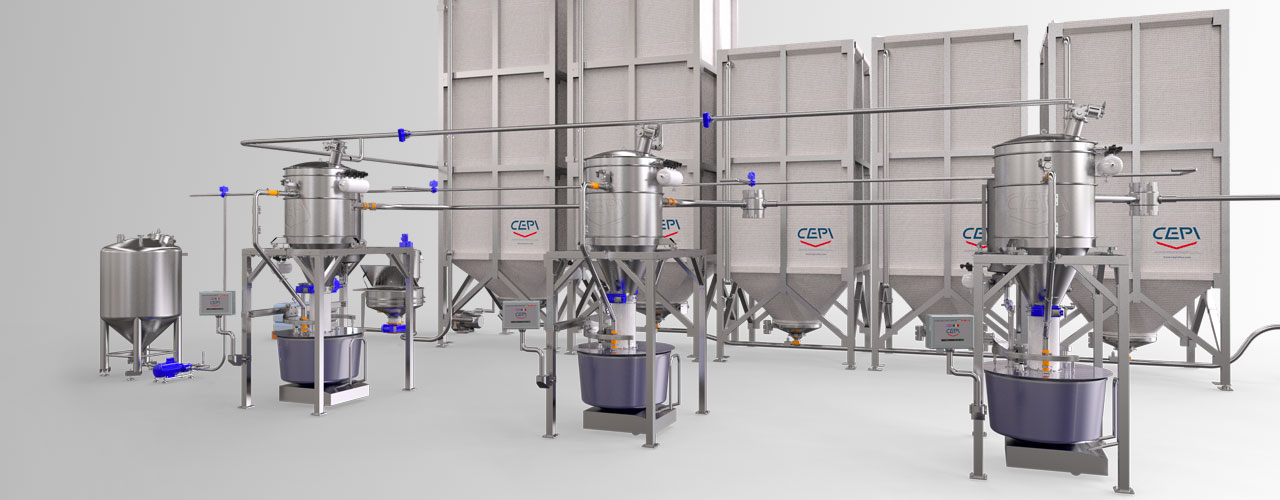
Dosing system for powders and liquids on three lines with one touch panel controlling each
The process
Bulk-handling is not just about silos. Designing a dosing system is a complex process that requires a close analysis of the manufacturer’s processes. With repeatability, traceability and precision in mind, detailed information is needed about raw materials and consumptions, building evaluation, humidity and temperature effect and cross contamination, as well as other important concerns such as sustainability. The customer’s experience during this process is rarely discussed but for a project to be successful, the ability to fully involve them before and during planning is fundamental.
What is the role of the customer? What is the best way for them to gather the information needed to develop the best automation system? Firstly, we must remember that the bulk-handling system isn’t marginal. While roughly the planning involves three main stages (ingredient analysis, the study of where to install the equipment and connection with production), there is a crucial preliminary phase that fully illustrates how automated dosing must be connected with all company’s activities: not only production and technical, but warehouse, purchasing and marketing.
Why the marketing team? Because a projection of future productions should always be kept in mind to design a system that can be easily adapted or expanded in the future. This information is easily available within the company but the customer is not often encouraged to use it in the context of their bulk-handling system. CEPI does it.
This vision extends to all the planning. The three stages mentioned above are not happening in a linear way one after the other but are interdependent. Because of rich food technology expertise, CEPI will ask all relevant technical questions regarding the materials, recipes and batches. But the customer needs to be fully accompanied and supported through their analysis of the ingredients by someone who not only knows their properties, but understands how to manage all kinds of related concerns, for example in relation to the way they are received (bulk, bags, barrel, IBCs and so on.) It will help not only to match them with the most suitable dosing process, but to identify critical ingredients, technological advantages and saving opportunities. The building evaluation and connection with production need the same kind of overall view of the entire production, even small processes. When planning a new line, not only all the elements (bulk-handling system, mixer, packaging) must be taken in consideration and planned in parallel, but all future opportunities should be kept in mind.
CEPI is known for this kind of elastic thinking, and it is one of the reasons it innovates so much: the will to fully understanding the process and to then match it with a system that matches it translates to a pretty much constant evolution of the technology and expansion of the range.

Native software for process control, warehouse management and full traceability
Industry trends
We see an increasing push towards vertical integration of production data beyond those regarding materials, like data on energy consumptions or compressed air, or anything that is useful to establish the exact value of a product.
The automation CEPI develops matches this demand by providing total interconnection and information exchange. As mentioned, we can send and receive information to and from any third party in the line. Our solutions provide full horizontal and vertical integration, and we can generate important information for the production department, management, Quality Control and Purchases.
The move toward a total digitalization extends to a preference for remote control of all operations, from any location and on all devices such as smart phones and tablet. CEPI is already providing this alongside with remote commissioning, maintenance and monitoring.
Our automation team provides full 24/7 remote support on all tools with live visualization on VPN network, management of production and intervention on the source code. Testing, optimization, start-up and training can be delivered remotely, and we offer virtual and personalized tutorials and live assistance with dedicated devices. On top of remote operations, we can count on a worldwide network of local partners who are able to provide technological and sales related support at all stages of the project.
Get a quote
Powders, granular products, liquids, fats. Macro, micro, medium volumes. Fermentation, flour cooling, fluidization, sugar milling, invert sugar, salt solution, blending, cold dosing, scrap rework. Our motto is: if your process needs it, we can do it. If we can’t do it yet, we will develop it, just for you.
Get a in touch to develop a fully customized and automated installation for your recipe:


